Book Study Resources for Autism Focused Learning
Video: Book Study Intro Video
The audio in this video describes all relevant visual information. Audio description is not needed for this video.
What is Audio Description?
When Audio Description (AD) is enabled, descriptive language narrates what is on the screen. To learn more, visit our accessibility webpage.
Video Player Help
Kaltura Video Hosting: This website uses Kaltura, a video hosting company, to serve video content. If you are having difficulty viewing videos on this site, it may mean that your location (e.g., school district, organization) is blocking or filtering the Kaltura website. Please contact your IT personnel to resolve this issue.
Accessibility: We strive to make this website accessible for all users, including people with disabilities. To learn more visit our accessibility webpage.
Captions / Transcript
After hitting play you can access an interactive transcript for this video by selecting the Show Transcript icon![]() in the top right corner of the video when you select play.
in the top right corner of the video when you select play.
You can turn on captions by selecting the Enable Captions icon![]() in the bottom right corner. Captions can also be turned on by selecting the Settings icon
in the bottom right corner. Captions can also be turned on by selecting the Settings icon![]() , where you can also set your caption preferences.
, where you can also set your caption preferences.
When available, you can use Spanish subtitles for this video by selecting Settings![]() and choosing Spanish in the Captions drop down menu.
and choosing Spanish in the Captions drop down menu.
Learn how to support individuals with autism spectrum disorder through the use of our book studies. The OCALI Autism Center has provided book study questions available worldwide for any user on a variety of topics to enhance your understanding of ASD. Each book contains free downloadable guiding questions.
Use in a variety of ways:
- With a professional learning community
- Through an online learning platform
- With groups including families, educators, and professionals
- In large group, small group, or individual learning format
Learn how Ohio's State Support Teams have utilized the book studies along with webinars.
Click here to provide us feedback on how you have used this resource in your practice and/or personal life.
The following books can be borrowed from OCALI's lending library for any person over the age of 18 residing or working in the state of Ohio.

New
Life on the Bridge: linking my world to yours as an autistic therapist
Kaelynn Parlow
You've heard from autistic authors.
You've heard from therapists.
Now hear from one extraordinary young woman who's both.
Experience autism from the inside out through a rare fusion of professional skill and personal understanding. Reshape what you know about the autism spectrum and increase your ability to give support. Varied perspectives among autistic individuals, their families, and professionals have often been difficult to reconcile. Now, you can bridge that divide with guidance from someone who’s lived in multiple worlds. Find immediate, actionable options to build connections, foster communication, navigate challenges, and enhance interactions.
Download A Life on the Bridge Book Study (PDF)
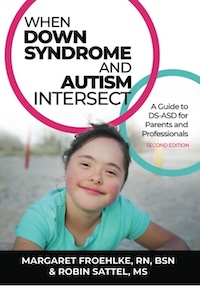
When Down Syndrome and Autism Intersect: A Guide to DS-ASD for Parents and Professionals, 2nd edition
Margaret Froehlke, RN, BSN and Robin Sattel, MS
The first edition of When Down Syndrome and Autism Intersect was the first book to focus on the unique profile of a Down Syndrome-Autism Spectrum Disorder (DS-ASD) diagnosis. Now with this greatly expanded, updated second edition, it remains the only book for parents and professionals offering a comprehensive guide to supporting individuals with this complex dual diagnosis. Written by a large team of veteran parents and experts in the field, it covers every aspect of caring for children and adults with DS-ASD. Full of good will and respect for the DS-ASD community, this book offers sound information and resources steeped in research and clinical findings. It is also grounded in respect and concern for the parents’ need for specialized supports. Families will find a treasure trove of anecdotes and practical advice, discovering that they are not alone as they continue on their DS-ASD journey.
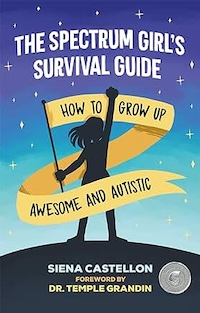
The Spectrum Girl's Survival Guide: How to Grow Up Awesome and Autistic
Siena Castellon
"The Spectrum Girl's Survival Guide: How to Grow Up Awesome and Autistic" is a comprehensive guide offering a unique perspective on the challenges and triumphs that come with being a girl on the spectrum. The book delves into a variety of topics, providing practical advice on social interactions, communication skills, and self-advocacy. With a focus on embracing one's unique neurodivergent identity, it encourages readers to celebrate their strengths and discover their own paths to success. From managing sensory sensitivities to building meaningful friendships, each chapter addresses key aspects of growing up with autism and equips young girls with the tools they need to thrive.
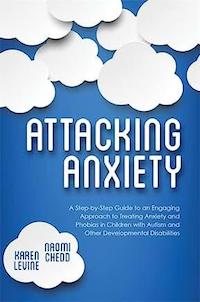
Attacking Anxiety: A Step-by-Step Guide to an Engaging Approach to Treating Anxiety and Phobias in Children with Autism and Other Developmental Disabilities
Karen Levine and Naomi Chedd
Based on Cognitive Behavioral Therapy, this book shares a step-by-step enjoyable approach for addressing anxieties, fears, and phobias common in autistic children and teens. It provides scenarios including visiting medical professionals, managing transitions and changes, and tolerating mistakes. This model is designed to help family members, teachers, and therapists of autistic individuals successfully alleviate many of the anxieties and phobias that interfere with life enjoyment for the child/teen and the entire family.
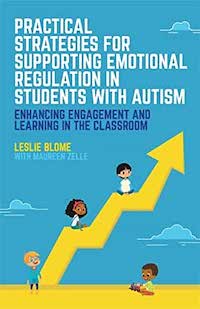
Practical Strategies for Supporting Emotional Regulation in Students with Autism: Enhancing Engagement and Learning in the Classroom
Leslie Blome with Maureen Zelle
Discover how to support students with autism using this practical guide. Based on research, this guide provides descriptions of strategies followed by ways to implement the strategies in inclusive environments. Using real-life examples, the authors connect emotional regulation to understanding behaviors, learning, and engagement in the classroom.
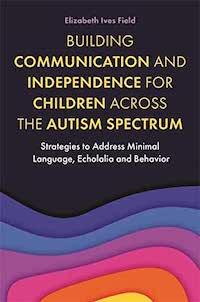
Building Communication and Independence for Children Across the Autism Spectrum: Strategies to Address Minimal Language, Echolalia and Behavior
Elizabeth Ives Field
Learn how to teach communication and social skills to individuals with autism. The author shares composite case studies to demonstrate common issues (I.e., echolalia, pre-symbolic, atypical, behavioral) faced by children with different levels of development and varied degrees of autism severity. A wide range of interventions that address communication and social behavior are covered. This book offers skills that are developmentally appropriate and immediately useful to help individuals with autism express themselves more effectively and build relationships with others.
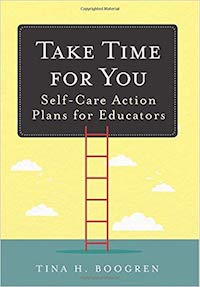
Take Time for You: Self-Care Action Plans for Educators
Tina H. Boogren
This book sets the stage for educators to recognize that research-based educational strategies and pedagogy truly depend on the teacher's mental health and well-being. It reminds educators of the importance of taking care of themselves, so they can take better care of their students. The book is based on Maslow's hierarchy of needs: (1) Physiological, (2) Safety, (3) Belonging, (4) Esteem, (5) Self-actualization, and (6) Transcendence. Read this book and discover a range of manageable research-based strategies, self-care surveys, and reflective teaching questions in each area of Maslow's hierarchy of needs that can help guide you in developing a personalized self-care action plan. The author's thought-provoking questions and strategies make this book a meaningful, positive journey for those in the education field.
Download the Take Care of You Companion Document
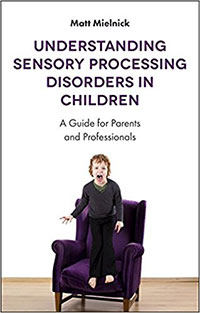
Understanding Sensory Processing Disorders in Children
Matt Mielnick
This book explains the way our sensory system works and provides early childhood professionals and families with a deeper understanding of how sensory processing disorder can have a huge impact on a young child's behavior. Through relatable examples of case studies, this book describes the variety of sensory processing differences that can occur in children and offers practical advice to help manage these differences. The author is an OT and provides the information to readers in a clear, concise manner that is ideal for those seeking to learn more about sensory challenges.
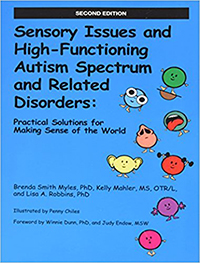
Sensory Issues and High-Functioning Autism Spectrum and Related Disorders
Practical Solutions for Making Sense of the World
Brenda Smith Myles, Kelly Mahler, Lisa Robbins
Expanding on the first edition, this book provides information on how children with high-functioning ASD connect through their senses. Sections on assessment tools and evidence based interventions are included. Checklists and practicable forms are included to assist readers with supporting children across environments and throughout the entire day.
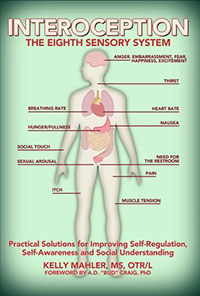
Interoception: The Eighth Sensory System
Kelly Mahler
This book provides information to parents and professionals on the eighth sensory system, Interoception. The Interoceptive System allows individuals to understand signals from their body, such as hunger, thirst, pain, fear, etc. Many individuals with autism spectrum disorder are challenged with labeling how they are feeling internally. This book provides research as well as practical strategies to support individuals who struggle with self-regulation.
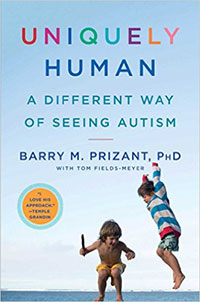
Uniquely Human: A Different Way of Seeing Autism
Dr. Barry Prizant
This book, written by a well-regarded expert in the field, is filled with inspiring stories taken from years of experience working with individuals with autism spectrum disorder (ASD). The author encourages readers to look at individuals with ASD differently, not as persons with an unfortunate disability but as people who are uniquely human.
Interested in taking a 2-hour course with Dr. Barry Prizant on Uniquely Human? All proceeds will be donated to a weekend parent retreat fund. Click here to learn more.
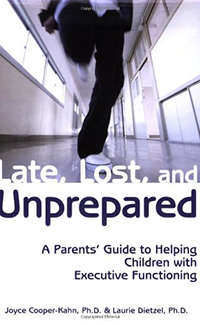
Late, Lost and Unprepared
Joyce Cooper-Kahn and Laurie Dietzel
This book is full of practical strategies and tips to support families and educators of children from elementary school through high school who are challenged by weak executive function skills. Despite their best efforts, children who struggle with executive function skills may need support in areas such as organization, impulse control, self-monitoring and working memory. Given the academic and social demands students encounter on a daily basis, this book is a must-have resource for parents and educators.
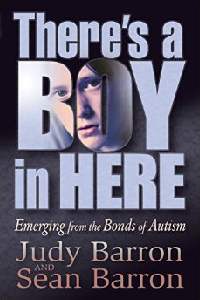
There's A Boy In Here
Judy Barron and Sean Barron
This is a view from inside the mind of autism - a dual autobiography written in point-counterpoint style by Judy Barron and her son, Sean Barron. Together, they chronicle Sean's young life and the effects of autism on him and his family. As a youngster, Sean was confrontational, uncontrollable, "isolated and desperately unhappy." Baffled about how to interact with others, he felt "like an alien from outer space." Then, at seventeen, Sean experienced a breakthrough that began his release from autism. Today he's a public speaker and reporter - and close to his family.
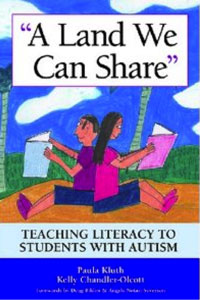
A Land We Can Share
Dr. Paula Kluth and Kelly Chandler-Olcott
This book moves beyond functional literacy skills and shows K-12 educators how to bring high-quality, meaningful literacy instruction to students with autism. It helps in-service and pre-service teachers understand how students with mild to significant autism can be perceived as literate and then supported to participate in literacy activities both in and out of school.
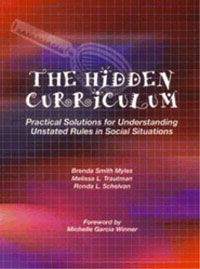
The Hidden Curriculum
Dr. Brenda Smith Myles, Melissa Trautman, and Ronda Schelvan
This book offers practical suggestions and advice for how to teach and learn those subtle messages that most people seem to pick up almost automatically but that have to be directly taught to individuals with social-cognitive challenges. Given the serious consequences that can befall a person who violates a social rule, the strategies and detailed lists of curriculum items make The Hidden Curriculum a much-needed resource.
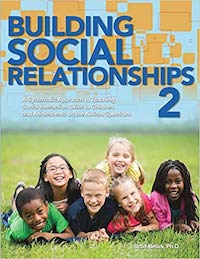
Building Social Relationships 2
Dr. Scott Bellini
Building Social Relationships 2 by Scott Bellini uses the same comprehensive five-step model to address social programming as discussed in the first edition, while including the infusion of new lessons learned through implementing the practices. New to this edition is the teaching of both social skills and social-cognitive processing, including social problem-solving, observational learning, and attention and successful strategies to teach social skills and social-cognitive processing.
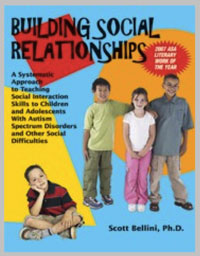
Building Social Relationships
Dr. Scott Bellini
This book addresses the need for social programming for children and adolescents with ASD by providing a comprehensive five-step model. The model incorporates the following steps: assess social functioning, distinguish between skill acquisition and performance deficits, select intervention strategies, implement intervention, and evaluate and monitor progress. The book also supports parents and professionals with organizing and making sense of the myriad of social skills strategies and resources currently available.
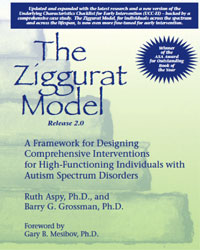
The Ziggurat Model
Dr. Ruth Aspy and Dr. Barry Grossman
This book provides a framework for designing interventions for individuals with autism spectrum disorders. It includes the latest autism research as well as a special section on how to integrate The Comprehensive Autism Planning System (CAPS; Henry and Myles, 2007). It is being adopted by many school districts as essential tools in program planning and treatment. It includes assessment tools, case scenarios, and interventions developed to meet the unique needs for those with ASD.